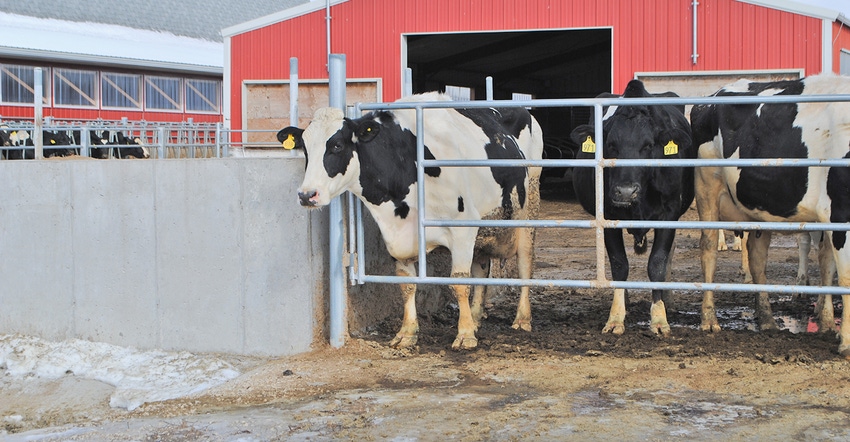October 31, 2018

A dairy herd in Dane County, Wis., has been quarantined after three cows tested positive for bovine tuberculosis, according to the Wisconsin Department of Agriculture, Trade and Consumer Protection.
Meat inspectors identified a carcass during a routine slaughter inspection and sent a sample to the National Veterinary Services Laboratory for testing. Through animal identification records, the carcass was traced back to a herd at Maier Farms LLC near Waunakee that DATCP immediately quarantined. A quarantine prevents any animals from moving on or off the farm.
“We are working closely with the herd owner, U.S. Department of Agriculture, Department of Health Services, area veterinarians, industry partners and other herd owners. We are taking aggressive measures to control and prevent the spread of this disease,” says Dr. Darlene Konkle, DATCP’s acting state veterinarian. “Our staff and partners train for these types of responses and are taking the necessary steps to protect animal and human health.”
More than 2,000 dairy cows and heifers have been quarantined at Maier Farms.
According to a story by the Associated Press, the strain of bovine TB in the cows matches a strain found in a Maier Farms employee who worked there in 2015, indicating the worker may have infected the herd. Animals often don’t show signs of infection until the disease reaches an advanced stage, which can take years.
According to DATCP, pasteurized milk continues to be safe to consume. The pasteurization process, which destroys disease-causing organisms in milk by rapidly heating and then cooling the milk, eliminates the disease from milk and milk products. Bovine TB is most commonly spread to humans through consuming unpasteurized milk or milk products from infected animals, and close contact with infected animals or people. Also, infected people can be a source of infection to animals. More information about human TB is on the Centers for Disease Control website.
Food safety laws prevent meat from infected animals from entering the food chain. State and federal inspectors at slaughter plants evaluate live animals and animal products for signs or symptoms of disease and remove any from entering food production.
Bovine TB is a respiratory disease of cattle that does not spread easily. It is a chronic, slowly progressive disease, meaning it can take months or years to worsen, grow or spread. Infected animals may pass the infection to other animals even if they appear healthy.
The U.S. has nearly eliminated bovine TB due to the National Tuberculosis Eradication Program, which began more than 100 years ago. Wisconsin has been certified as TB-free since 1980. With a thorough investigation and containment of an outbreak, Wisconsin will maintain its TB-free status with USDA.
More information about bovine TB is available on DATCP’s website.
Source: Wisconsin DATCP
You May Also Like




